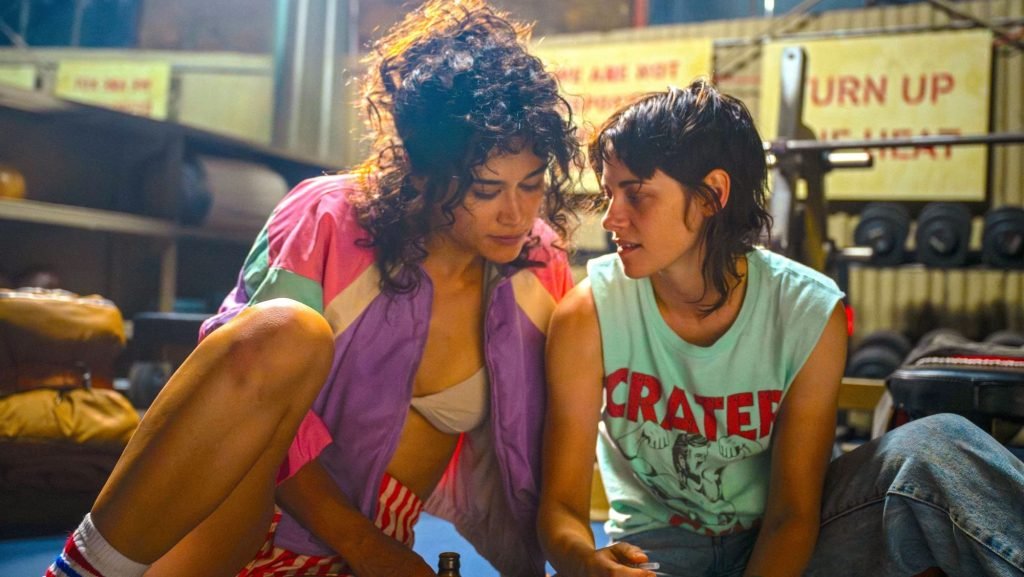As 2024 has wrapped, we bring you Purple Hour’s cumulative unranked list of films that explore and engage with LGBTQIA+ life, experiences, histories, subjects, and emotions — all of which world-premiered in 2024. Ranging in genres, styles, themes, and countries of origin, we also want to demonstrate that great cinema featuring LGBTQIA+ stories is constantly being created all around the world between emerging and established filmmakers alike. With this list, we hope you’ll find a new favourite perhaps even amongst the films you weren’t familiar with before, whether it be slow cinema, genre-bending work, or a compelling drama.

All Shall Be Well (從今以後) – Ray Yeung
After Suk Suk (2019), Hong Kong director Ray Yeung brings older queer couples once again to the fore with his tender-hearted but bittersweet Teddy Award feature film winner, All Shall Be Well. Yeung juxtaposes the intimacy of Hong Kong’s queer community with the daunting nature of the surrounding urban density, just as he expertly contrasts Angie’s (Patra Au Ga Man) intense love for her late wife Pat (Maggie Li Lin Lin) with the deliberately impersonal behaviour of her wife’s family toward Angie and their lesbian relationship. The filmmaker repeatedly hints at the theme and visual motif of obscurity, with the tensions between Pat’s family and Angie coming to a fever pitch in a reflection of their mere existence appearing as clashing with tightly gripped conservative values. Yeung, who insists on his identification as a gay filmmaker for reasons of activism, cites gay Hong Kong Second Wave filmmaker Stanley Kwan as inspiration; Kwan’s film Hold You Tight (1998) also received the Teddy Award for feature film. –OP
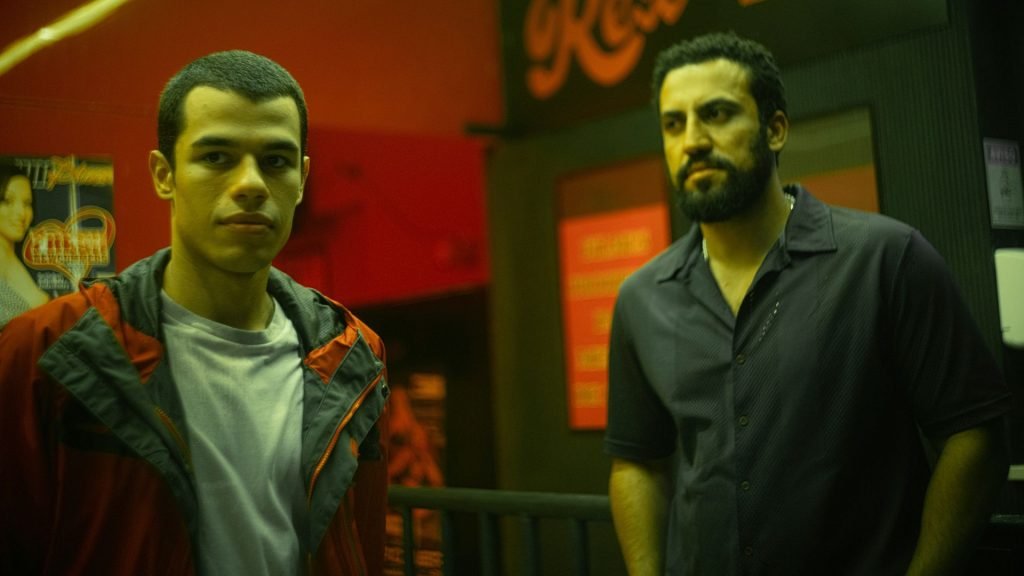


Baby – Marcelo Caetano
In his sophomore feature, Brazilian director Marcelo Caetano brings an impressively realist gay relationship in hyper-urban São Paulo to the big screen, tackling generational dynamics of an age-gap relationship alongside the everyday realities of queer street-life. After exiting a juvenile detention facility when he becomes an adult, Wellington (João Pedro Mariano) meets the older sex worker Ronaldo (Ricardo Teodoro), who shows the young man (now having adopted the moniker “Baby”) how to use his youth and personality to find clients. The pair maintains a casual relationship of their own, which becomes rocky when Baby attracts the sexual interest of a drug kingpin. Changes in LGBTQIA+ generational norms and incompatibilities in the lives of the two become abundantly clear in how they prefer to spend their time: Baby parties with his more flamboyant street-dancer friends, while Ronaldo remains decidedly more reserved. Although jealousy and desire flutter between them, Caetano focuses on the coexisting aspects of queer joy and Baby’s newfound agency, turning the potentially predatory nature of the relationship on its head. An unexpectedly beautiful aspect of the film comes in the form of Caetano’s depiction of less conventional blended family, including the generosity and love exhibited between Ronaldo, his former partner Priscilla and their son, and Priscilla’s wife Jana. –OP
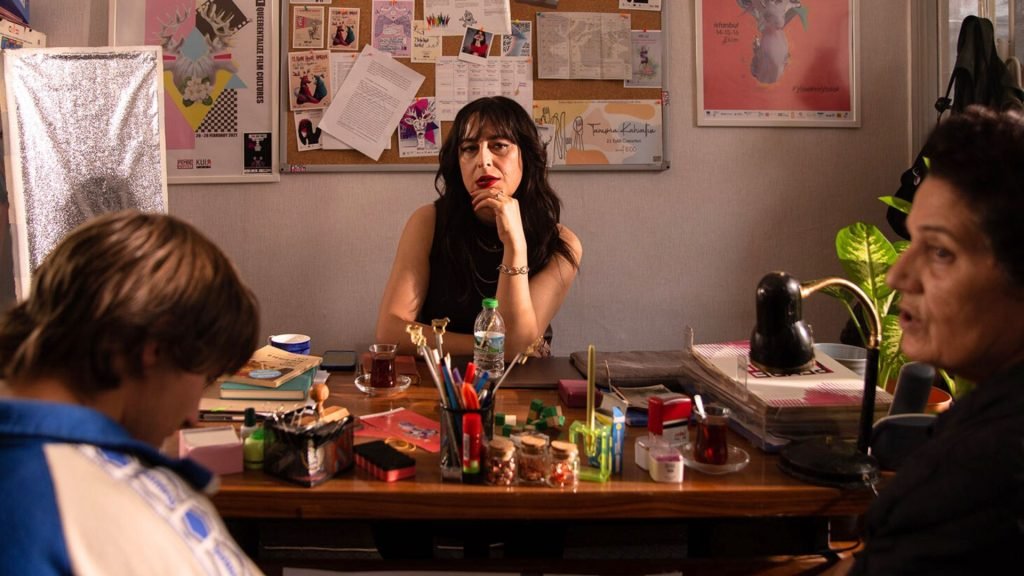


Crossing (Geçiş / გადასვლა) – Levan Akin
Levan Akin became a filmmaker to watch after captivating audiences with his spellbinding Georgian-language drama And Then We Danced (2019), which depicted the burgeoning love between two young male dancers in a social environment deeply intolerant of their romantic and sexual connection. The Swedish writer-director of Georgian descent now turns to broader themes of refuge, solidarity, care, and allyship in Crossing (also known in some territories as Crossing Istanbul), in which an unlikely friendship between a retired teacher (Mzia Arabuli) and a teen (Lucas Kankava) desperate to escape his hometown takes the duo from rural Georgia all the way to Istanbul in search of the former’s niece. Like in And Then We Danced, Akin’s newest film grows on the deeply meaningful encounters that his protagonists have with trans residents in urban settings. The woman and the boy strike up a profound relationship with an Istanbul-based trans rights activist and lawyer (Deniz Dumanlı), with the filmmaker homing in both on how outsiders engage with the trans community as well as how the community itself relies on the transformative power of mutual aid and support. –OP
‘Crossing’ is now available for streaming on MUBI.
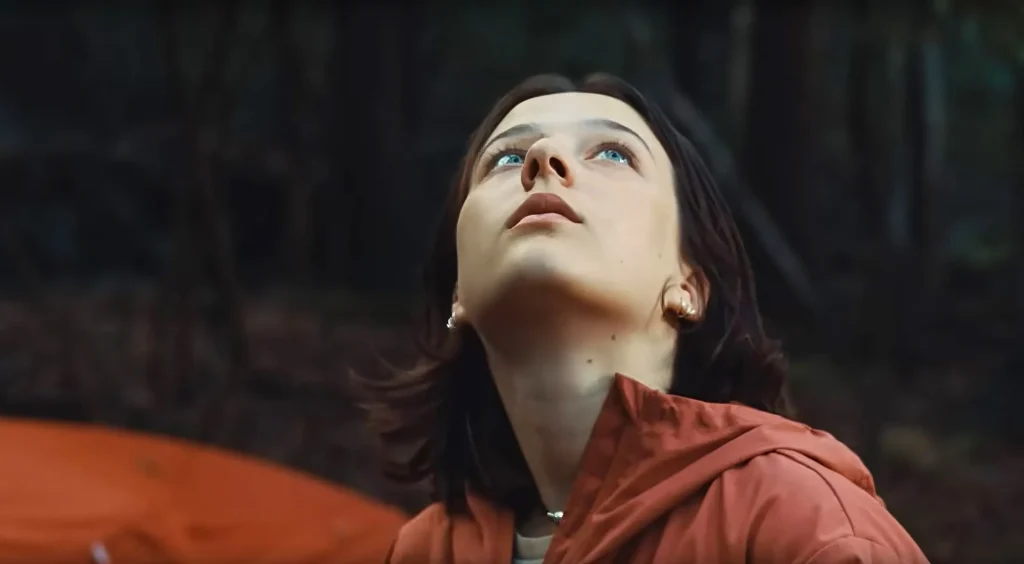


Good One – India Donaldson
US writer-director India Donaldson’s subtle yet deeply affecting debut feature Good One set indie hearts ablaze when it world-premiered at Sundance nearly a year ago. Via this slightly unconventional coming-of-age work set during a weekend camping trip in the Catskills, we witness the ways in which 17-year-old Sam (breakout performer Lily Collias) is simultaneously and profoundly impacted by the toxic patriarchal social norms hidden just surface-deep beneath a façade of generosity. In this dialogue-driven film, the performance of masculinity from Sam’s father Chris (James Le Gros) and his friend Matt (Danny McCarthy) transforms at every turn, forcing Sam to interpret their behaviour and react accordingly. On top of all this, our young protagonist nurtures a parallel relationship with teenage Jessie, who is heavily implied to be her girlfriend as they text all weekend. Over the course of the trek, she becomes the de facto caretaker and sage for the woeful men, only to have her efforts ignored and about-faced. Through the nuances in the often sad, dark, and disappointing realities of gendered social life that Donaldson reveals over the film’s short runtime, Good One will sink beneath your skin and linger long after the credits roll. –OP


Love Lies Bleeding – Rose Glass
After breaking onto the scene with Saint Maud (2019), Rose Glass returns with her sophomore feature, Love Lies Bleeding, is a pulpy neo-noir set amidst the heat of New Mexico. We meet Lou (Kristen Stewart) in the bathroom of the gym she manages, elbow deep in shit—a metaphor she ceases to escape for the next 90 minutes. After Lou meets hitchhiking bodybuilder Jackie (Katy O’Brian), their immediate attraction quickly develops into a codependent romance laced with chaos. As they mix the toxicity of their newfound relationship with the use of steroids, their dynamic creates an engrossing thriller. The filmmaker uses close-up shots of sweat beads and blood spatters to create a grimy atmosphere that at boasts the overlap between sexuality and violence. The third act is stylistically polarising as the film dips its toe into a sort of magical realism but never takes the plunge. Most crucially, Glass directs with the fundamental understanding that cinema is best shown rather than told. Wide shots and montages are employed to tell this story rather than relying on dialogue, making for a genuine neo-noir experience that invites queer stories into a genre that typically did not (or does not) include them. –LC



Pink Lady – Nir Bergman
Israeli filmmaker Nir Bergman is probably best known for his Haifa-set debut film Broken Wings (2002), which won several awards at the 2003 Berlinale and the Grand Prix at the 2002 Tokyo International Film Festival. Having captivated both local and international audiences over 20 years before, his latest feature, Pink Lady, falls into a rather underrepresented category: Jewish Orthodox queer cinema. Bati (Nur Fibak), a devoted wife, sees her world shatter when she receives intimate images of her husband, Lazer (Uri Blufarb), with another man. The narrative dives headfirst into the complexities of love, identity, and societal expectations whilst highlighting the struggles of both the deeply ostracised gay communities within religion and the wives caught in their invisible pain. This includes Bati, who goes to great lengths to please her husband, only to embark on her own unexpected journey of sexual self-discovery. From conversion therapists to ultra-Orthodox modesty patrol gangs, the film’s treasure lies in its impeccable craft of portraying consequences of all types in a world where homosexuality is considered a sin. Bergman’s directing, coupled with Mindi Ehrlich’s versatile screenplay—drawn from her own experience in the Hasidic community in Jerusalem—creates a powerful narrative that carefully avoids possible clichés and depicts its characters with utmost empathy. Pink Lady subtly critiques witless societal norms while giving a voice to a silenced perspective, making it a fresh and timely queer narrative worth seeing. –EET
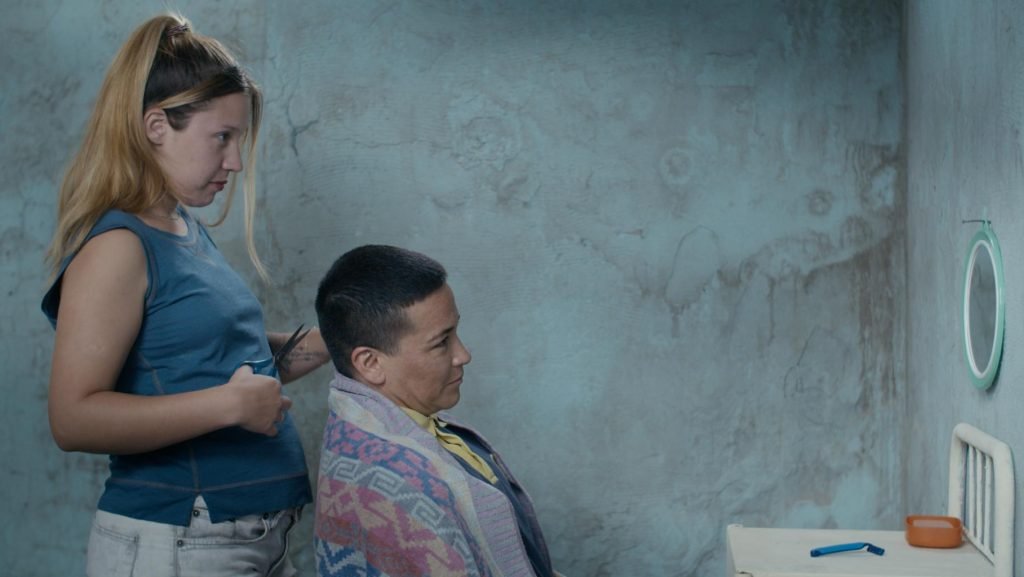


Reas – Lola Arias
It’s a reenactment, it’s a documentary, it’s a musical: Argentinian theatremaker-turned-filmmaker Lola Arias brings her stage background to bear in her label-defying festival favourite, Reas. Using a tender and open cinematographic gaze, she combines the aforementioned techniques to explore a range of empathetic material stemming from the experiences of AFAB (assigned female at birth) former inmates of all ages, including Yoseli Arias, a cis woman, and Nacho Rodriguez, a trans man. They play all parts — including prisoners and guards — through narrative account, song, and direct performance, which is honest and deliberately unpolished in its acting style, the subject-cum-actors’ raw emotion and care showing through. Reas also speaks to theatre as a medium through which to process emotions as the cast plays roles in each other’s most personal memories. The affective themes of Reas work in close harmony with its style, where the layers of storytelling play on each other in the individuals’ reclamation of their own stories. Arias’ debut feature, Theatre of War (2018), adopts a similarly metatheatrical and memory-centric conceit, albeit with a cast of British and Argentinian former soldiers who fought on opposing sides during the 1982 Falklands War/Guerra de Malvinas. –OP

